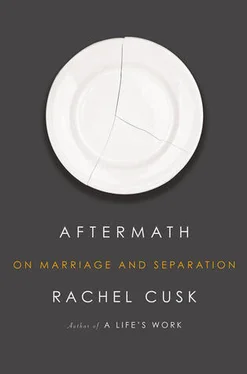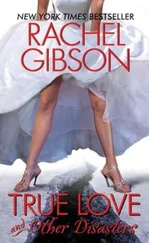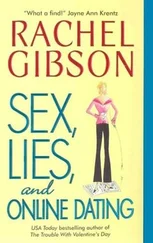Rachel Cusk - Aftermath - On Marriage and Separation
Здесь есть возможность читать онлайн «Rachel Cusk - Aftermath - On Marriage and Separation» весь текст электронной книги совершенно бесплатно (целиком полную версию без сокращений). В некоторых случаях можно слушать аудио, скачать через торрент в формате fb2 и присутствует краткое содержание. Год выпуска: 2012, Издательство: Farrar, Straus and Giroux, Жанр: Публицистика, Биографии и Мемуары, на английском языке. Описание произведения, (предисловие) а так же отзывы посетителей доступны на портале библиотеки ЛибКат.
- Название:Aftermath: On Marriage and Separation
- Автор:
- Издательство:Farrar, Straus and Giroux
- Жанр:
- Год:2012
- ISBN:нет данных
- Рейтинг книги:3 / 5. Голосов: 1
-
Избранное:Добавить в избранное
- Отзывы:
-
Ваша оценка:
- 60
- 1
- 2
- 3
- 4
- 5
Aftermath: On Marriage and Separation: краткое содержание, описание и аннотация
Предлагаем к чтению аннотацию, описание, краткое содержание или предисловие (зависит от того, что написал сам автор книги «Aftermath: On Marriage and Separation»). Если вы не нашли необходимую информацию о книге — напишите в комментариях, мы постараемся отыскать её.
Aftermath: On Marriage and Separation — читать онлайн бесплатно полную книгу (весь текст) целиком
Ниже представлен текст книги, разбитый по страницам. Система сохранения места последней прочитанной страницы, позволяет с удобством читать онлайн бесплатно книгу «Aftermath: On Marriage and Separation», без необходимости каждый раз заново искать на чём Вы остановились. Поставьте закладку, и сможете в любой момент перейти на страницу, на которой закончили чтение.
Интервал:
Закладка:
Outside the dentist’s windows is a sky of brilliant blue. Yesterday’s rain has been succeeded by an outpouring of confident spring sunshine, as unseasonally hot as the other was preternaturally cold and dark. The dentist’s room is balmy and bright; the sun sparkles on the steel instruments. The whole place is somewhat decrepit, the narrow building in its higgledy-piggledy street all crooked angles and canting floors, its partition walls and flimsy ceilings thickly muffled in bumpy off-white paper, its beech-patterned beige vinyl rising and falling thinly over the uneven boards. In the reception area there is a small fishtank with electric-green plastic ferns and a bubbling pirate ship sitting on a gravel bed; there are posters of diseased mouths, of infected gums, of the blackened stumps of rotted teeth. The dentist strides superbly around these improvised spaces in his patterned robe, as cheerful and dignified as his visitors are pensive and cowed. His teeth are strong and white and straight, and perhaps for this reason his smile is irrepressible. It lives on the surface, always reappearing, like something buoyant in water: it can’t be sunk. It looks, almost, unnatural. It is hard to know whether it represents good fortune — luck — or diligence and hard work. He appears to be happy, but has he always been like that? His partner in the dental practice has teeth as grey as tombstones in an overcrowded graveyard, and a canny, comprehending face; his overall is shabby and creased. From these appearances it might be deduced that one man has the knowledge of failure and the other does not. But how can one really tell? And is it better to be at the mercy of someone who understands pain or who has managed thus far to avoid it?
The dentist rummages in his tray of instruments; the nurses draw close. He leans forward, a dark shape against the bright window. The sunlit room is silent and there rises a kind of aural transparency through which a deeper background of sound emerges, intricately embroidered like an ocean bed seen through clear water: the sound of passing cars outside, of dogs barking and the distant keening of gulls, of fragments of conversation from the pavements below and music playing somewhere, of phones ringing, pots and pans clattering in a faraway restaurant kitchen, babies crying, workmen faintly hammering, of footsteps, of people breathing, and beneath it all a kind of pulse, the very heartbeat and hydraulics of the day. The dentist has a pair of pliers in his hand. Their factuality amid this impalpable veil of sound is unmistakable. They are simple and heavy and black. He wields them, drawing closer. He enters the mouth and with the arms of the pliers lays a ferocious metallic grip on the tooth. Every process has been passed through, except this one. First there was the long process of decay itself, brewing day after day in the darkness of the root; then the birth of pain, a seed that grew and branched, seeking out consciousness, awareness, like a plant seeks light and thereby blots it out; then the negotiations, consciousness negotiating with pain, trying to pacify and mollify it, to control and contain it, to dull it and hence live with it; then crisis, decision, action, a date and time decided on at which extraction would occur and the situation be brought to an end. But the contact of steel with human flesh has a reality of its own. It is happening: things are being changed, having been unable to change themselves.
The dentist wrenches and wrenches amid the soft tissues. His intervention seems allied somehow with death, yet it belongs to life, for its purpose is to liberate the sufferer from the cause of suffering. Its purpose is to separate what will not naturally separate itself. But it is cold and hard, insensate, brutal. It is called violence: people are forever trying to find alternatives to it, but they seldom work.
The dentist speaks.
‘More force is required,’ he says.
The nurse hands him a chisel. He positions it on the edge of the jaw and places the flat tip between the tooth and the gum. He pushes down, straining so hard that his smile becomes a grimace. Presently he stands to improve his leverage. He uses both hands; he stands on tiptoe, bearing down with shaking arms. The tooth resists and resists, and when at last it gives way it does so too easily, so that the chisel spends its force upwards, hitting the teeth above. They take the blow, these innocent teeth, rocking in their moorings; they loosen, but they stay where they are. The dentist holds up the bloody tooth between his trembling fingers. He is beaming again, though with less intensity. A little consternation threads his brow. Violence is so unwieldy, so difficult to control. There is collateral damage; the fine mesh of life is torn. He has caused unnecessary pain, and trauma to the other teeth. He feels bad about it. He is surprised.
‘I didn’t expect it to come out like that,’ he says. ‘I’m sorry.’
‘Please don’t worry,’ I say, with difficulty. ‘I’ll be all right.’
‘I will pack the wound with dressings,’ he says. ‘You need to change them every two hours. The bleeding should stop by tomorrow but you won’t be able to eat normally for a while. Soft things, that’s all. And cold will feel more pleasant.’ He smiles, happy again. ‘Make sure you buy yourself a big ice cream on the way home.’
Home: as a child I loved my grandmother’s house, a semi-detached Edwardian villa in a Hertfordshire suburb with mullioned windows on whose sills china shepherdesses stood, and King Charles spaniels with enamelled waterfalls of porcelain hair. In the gas-scented kitchen my grandmother served shepherd’s pie with frozen peas; I was put to bed in the little room upstairs whose window looked out on the rectangle of front garden with its laid redbrick path and gate, and beneath the faded pink candlewick bedspread and thick stiff sheets succumbed to the force of these sights and smells and textures which, though not human, seemed to define humanness. Touching the ornaments in my grandmother’s sitting room, from whose windows could be seen the long, sloping back lawn that led down to the railway line, I felt visible; the smell of the room where she and my grandfather slept in their mahogany bed, of the cold narrow lavatory, of the small pantry where the constituents of her plain English cooking dwelled, were so distinct that they made me distinct too, just as in the garden the dark foliage of the perennial shrubs made it possible to see the filigree spiders’ webs spun across their empty spaces. My mother grew up in that house: her amniotic atmosphere was there too in the potent rooms, as it was in my own consciousness, ineradicable.
As an adolescent I went to stay once with my grandmother alone; I ate in the linoleum-floored kitchen, sat amongst the ornaments in the sitting room, slept under the candlewick bedspread in the little room that seemed somewhat shrunken now, solidified, its reality and my own no longer intertwined. I could not, try as I might, feel like the child I once was. During those hours the whole merging of human and non-human came unravelled, for it became clear to me that the human history these rooms embodied could never be retrieved and released back into the world. A few years later the house was sold: other people live there now. In the compact little cottage to which my grandmother moved, a handful of the familiar objects are still exhibited, a trace of the familiar smell still remains; like a footprint in the sand after the tide has washed over it, her impression is being gradually erased.
In a box in an upstairs room of my house lie the deeds of the building, dating its successive transfers in ownership back to its construction in 1832. A sea captain had first bought the land from a farmer, one of several parcels of green hillside running down to the sea which together would form the basis of a sloping Regency terrace. The land is specified as having been pasture for grazing cattle: at the bottom of the hill the shingle beach shelves into the water, a straight and simple coastline at which the large ocean often seems to wait, as though lacking a means of intercourse with the land that bounds it. Fifty or sixty miles along, in Dorset, the relationship between the two is more dramatic, and dramatised, the limestone sculpted into extraordinary shapes by the pressing, insistent water, which is forever harassing and caressing its rocky mate, half predator and half lover. The resistant rock bears the marks of these attentions, either acquiescent or violated, it’s hard to tell. Its beauty and its deformity are its destiny, an interface lacking from the flat shoreline here, with its placidly frigid geology. Here the broad blank sea has no choice but to become reflective, as though it is not living but dreaming; sometimes utterly still, a shimmering unconscious shield of light, at others upset, blindly thrashing and roiling, unable to vent itself on anything tangible and real. There is nothing here for it to destroy, to affect: in the morning, after a storm, the beach will sometimes be littered with a great quantity of something particular, as though this is what has plagued its unconscious — hundreds of dead starfish, for instance, and once, mile after mile of sawn pine planks. These occasional expectorations, so unnatural and strange, seem to signify a certain malaise, a sickness that I interpret as frustration. I imagine the cattle grazing here once, slumbrous too, beside the comatose sea; imagine the land swept by unimpeded waves of shadow and light, by great gauzy veils of rain, by winds roaming unconstricted over the openness, and by darkness, by dark nights of wind and rain, the sea tossing and fretful, the rain hurling itself out of the sky, the wind raving up the bare hill and away among the black shapes of the Downs, and nowhere to shelter, no front door to close against the night.
Читать дальшеИнтервал:
Закладка:
Похожие книги на «Aftermath: On Marriage and Separation»
Представляем Вашему вниманию похожие книги на «Aftermath: On Marriage and Separation» списком для выбора. Мы отобрали схожую по названию и смыслу литературу в надежде предоставить читателям больше вариантов отыскать новые, интересные, ещё непрочитанные произведения.
Обсуждение, отзывы о книге «Aftermath: On Marriage and Separation» и просто собственные мнения читателей. Оставьте ваши комментарии, напишите, что Вы думаете о произведении, его смысле или главных героях. Укажите что конкретно понравилось, а что нет, и почему Вы так считаете.












